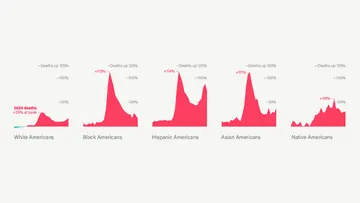Speaking in New York Friday, President Trump encouraged our nation’s police officers to rough up suspects in their custody. In the days since, many law enforcement leaders and groups have denounced Trump’s comments as damaging to police-community relations. Some have responded by publicly reaffirming their commitment to serve and protect the public, but what about the president's own oath?
"When you see these thugs being thrown into the back of a paddy wagon. You see them thrown in rough. I said, 'Please don't be too nice’," Trump told the audience of officers, referring to the practice of shielding suspects’ heads when placing them in police vehicles. "Like, don't hit their head and they've just killed somebody. I said, 'You can take the hand away, okay?'"
President Trump’s remarks encouraged officers to violate the Fourth, Eighth, and Fourteenth Amendments to the Constitution, which grant individuals the right to be free from excessive force while in official custody. They also require police officers to protect those under arrest from unnecessary harm. As the Supreme Court once put it, “when the State takes a person into its custody and holds him there against his will, the Constitution imposes upon it a corresponding duty to assume some responsibility for his safety and general well-being.” And since federal law makes it a crime to willfully depriving a person of a constitutional right, he asked them to violate federal criminal law as well.
Legal issues aside, President Trump’s speech also demonstrates how little he understands the law enforcement community he claims to support. Though some officers sometimes break the law, a fundamental part of being a police officer is taking policies and legal rules seriously. This is why so many police chiefs and leaders have come out strongly against the president’s comments.
Jim Bueermann, president of the Police Foundation and a retired police chief, described the law enforcement perspective well in his response to Trump: “Police officers are professionals. Professionals who take a sworn oath to uphold the law and to protect us all...That is what separates us from evil as we follow the rule of law.”
To be sure, it would a be stretch to suggest that President Trump might be criminally liable for any acts of police violence that result from his speech. The closest offense under federal law would be criminal solicitation and such a charge requires stronger evidence that he intended officers to carry out his advice than his political speech provides. Still, in urging officers to not be “too nice” to individuals they interact with, the president broke a promise to the American people.
However many people actually watched, President Trump swore on January 20 to “preserve, protect and defend the Constitution of the United States.” By encouraging police officers to criminally violate the Constitution, he violated that oath.
Rachel Harmon, a former federal civil rights prosecutor for the U.S. Department of Justice, is a professor at the University of Virginia School of Law and an expert on the law governing the police.

